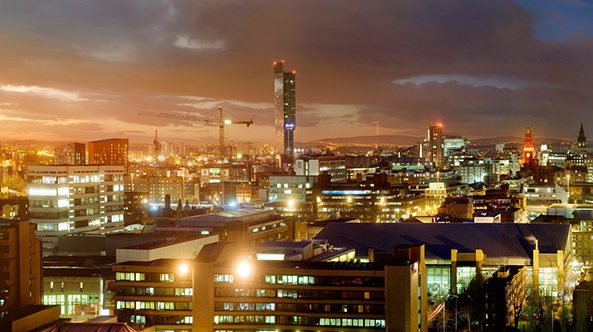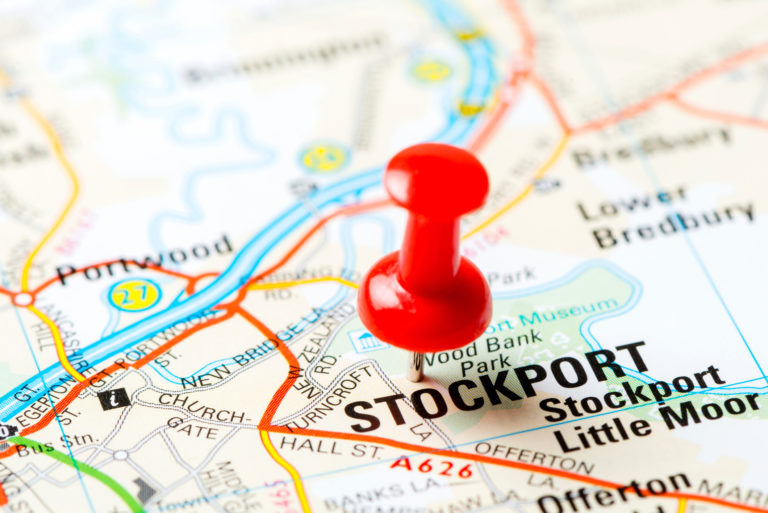Manchester is the spearhead of the Northern Powerhouse, and the latest rankings confirm its position as one of the best business locations to invest in the UK.
Despite the economic and political uncertainty that has dominated attitudes since 2016, UK cities have held their own when compared to the rest of Europe.
In a new Financial Times report, titled fDi European Cities and Regions of the Future 2020/21, Manchester in particular stands out. Impressively, out of every large city in Europe, it comes in fifth place in the top 10 list of best performing cities of the future. Four German cities – Frankfurt, Hamburg, Dusseldorf and Stuttgart – head up the list.
But it is in the business-friendliness category that Manchester stands out. It came in first position in this section, demonstrating that its appeal as a business centre is higher than anywhere in Europe. The UK in general fares well in this category, with UK cities taking four of the remaining top 10 places. These were Leeds (3rd), Glasgow (4th), Sheffield (6th) and Birmingham (8th).
Top potential in Manchester
In terms of connectivity, Manchester came in second place in the report, behind Rotterdam in the Netherlands. Manchester is home to its own international airport, connecting it to the rest of Europe, Asia and the US. It is also extremely well connected by train to the rest of the UK. This will improve drastically with the second phase of HS2 in the future, as well as promised Northern Powerhouse Rail improvements.
For its economic potential, Manchester also appeared in the top 10 list of large European cities. It sits in 9th place, and is the only UK city to appear at the head of the rankings. Greater Manchester’s GVA is around £62.8bn, with 1,322,200 people in employment. Operating costs are also an estimated 40% lower than London (figures from Invest in Manchester). The fact that it ranks highly in the latest list shows its promising future potential.
Business north-shoring
Growing numbers of businesses have relocated to Manchester in recent years, and this is expected to continue. While commercial rents are cheaper, the talent pool in the city is also impressive. The universities in the city have one of the highest graduate retention rates, so there is a high concentration of young professionals. As London becomes more expensive, more people than ever are seeking a higher quality of life in the north of England. Manchester is one of the prime targets for this.
Some big names in business already have offices and headquarters in Manchester. The BBC, ITV, Google, Amazon, Microsoft and Talk Talk are just some of the firms that have moved there. As a result, the core urban area has expanded massively in the city, increasing its appeal.
The population has also grown, and the city centre could have 100,000 more residents by 2025. For businesses, this makes Manchester a key place to consider.
What about property?
The Manchester property market is making big strides to keep up with the continually growing demand. The volume of property schemes forecast to complete this year is likely to break the current record for 2019, according to Deloitte. This includes a projected 8,800 residential units.
With an expanding job market, the rental sector in the city is expected to continue to thrive. Manchester is currently tipped as one of the best places in the UK to be a buy-to-let landlord. House prices, rental yields and residential demand are all favourable in the city, and there are opportunities for every investor.
While London continues to be favoured among some international and local buyers, Manchester is a close contender. The latest report from the Financial Times suggests why the city could even surpass its current popularity as a top business and investment location in the future.
At BuyAssociation, we can offer you a range of investment opportunities, a number of which are in Manchester. Browse our investments page for a snapshot, or sign up for free for full access.










